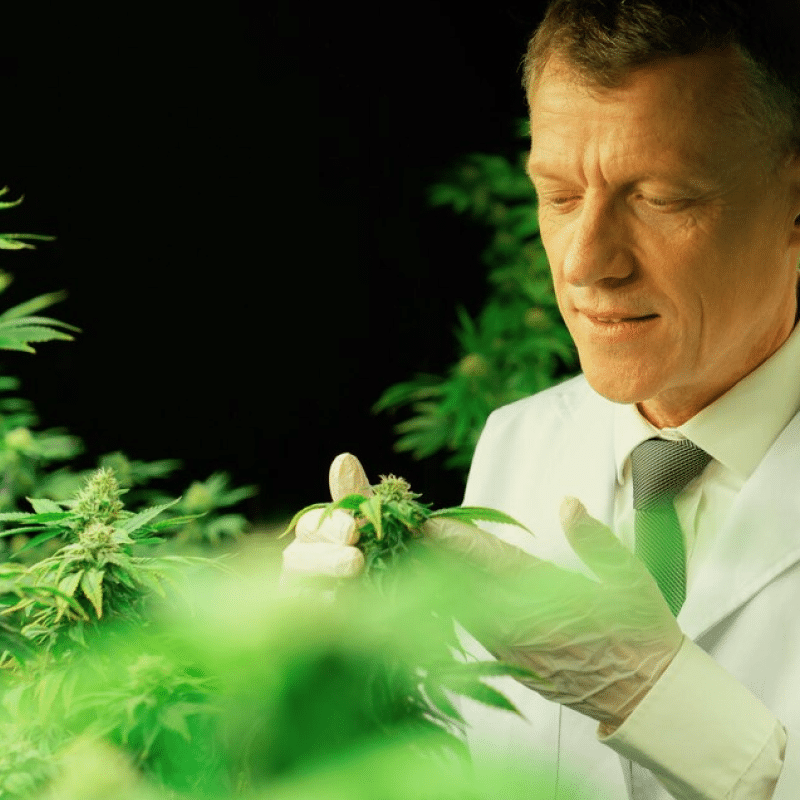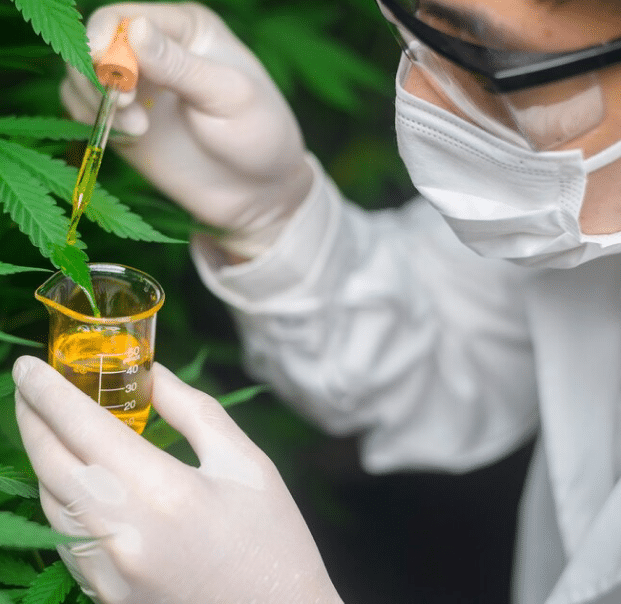Background
Minnesota decriminalized cannabis in 1976, but it wasn’t until 2014 that the state legalized the use of marijuana for medical purposes, lifting the cannabis prohibition. Only earlier in 2023, the Minnesota Government signed the cannabis legalization bill into law, allowing adults aged 21 or more to use cannabis for recreational reasons.
The new legalization law went into effect in August 2023, and it’s expected that the first marijuana dispensaries will be up and running in 12-18 months.
However, the 11 Native American tribal governments in Minnesota are sovereign and don’t have to wait for the state to finalize licensing systems. Therefore, some dispensaries have rolled out the recreational marijuana sales following August 1, 2023.
With these recent advancements, Minnesota’s cannabis market is poised for growth and is expected to cross $500 million by 2027.
Types of Cannabis Licenses in Minnesota
Cultivation Licenses
Permits for growing cannabis, with various tiers based on facility size and growing conditions.
Manufacturing Licenses
Allows for processing cannabis into various products, including extracts and edibles.
Retail Licenses
Enables the operation of dispensaries and delivery services for medical and/or recreational use.
Distribution Licenses
Required for transporting cannabis products between licensed facilities.
Cultivation Licenses
Medical growers licensed. Adult-use licensing to begin by 2025.
Back to the TopManufacturing Licenses
Medical processors licensed. Adult-use processor rules in development.
Back to the TopRetail Licenses
Dispensaries operational for medical. Adult-use sales projected for 2025.
Back to the TopHow to Obtain a Cannabis License in Minnesota?
Step 1: Comprehensive Research and In-depth Preparation
The process starts with comprehensive research. Here’s a breakdown:
Market Analysis
- Understand the existing cannabis market in Minnesota.
- Identify gaps and opportunities in the local market.
Consumer Insights
- Gather consumer behavior and preferences information in Minnesota’s preferred municipality/town/county.
- Conduct surveys or focus groups to understand customer needs.
Regulatory Proficiency
- Familiarize yourself with Minnesota’s cannabis laws and regulations.
- Keep updated on any changes in legislation.
- This is the right time to examine specific laws in a specific municipality or county.
Competitive Analysis
- Analyze competitors in your chosen sector (cultivation, retail, etc.).
- Study their business models, strengths, and weaknesses.
Site Selection
- Choose a suitable location adhering to zoning laws and regulations.
- Consider factors like accessibility, security, and market proximity.
Risk Assessment
- Evaluate risks related to the market, legal compliance, and operations.
- Develop strategies to mitigate identified risks.
Network Building
- Connect with industry experts, potential partners, and suppliers.
- Attend industry events and join cannabis business forums.
- Develop a Solid Business Plan
- Draft a robust business plan detailing your target market, financial projections, and marketing strategies.
Assemble the Necessary Documentation
- Gather legal documents, financial records, and business incorporation papers.
- Prepare detailed descriptions of your proposed business operations.
Step 2: Submitting the Application
How to Apply for a New License:
- Visit the Minnesota Office of Cannabis Management website.
- Fill out the application form and attach the required documents.
How to Renew Your License:
- Submit a renewal application before the expiration of the current license. Ensure paying the renewal license fee before submitting the renewal application.
- Ensure compliance with all regulatory requirements for renewal.
Agent Card Requirements:
- Understand the requirements for obtaining an agent card for your employees.
- Ensure all staff meet the eligibility criteria.
Limitations on Employment:
- Be aware of any restrictions or limitations on employing staff in the cannabis industry.
How to Apply for an Agent Card:
- Complete the agent card application process for each eligible employee.
- Submit necessary identification and background check information.
Payment and Fees
Note: Fee structures are subject to change. Consult the official Minnesota cannabis regulatory website for current fee schedules.
Application Fees
The application fee covers the initial costs associated with processing and reviewing cannabis business license submissions in Minnesota. These fees vary depending on the type of license and the size of the proposed operation. It’s essential to ensure all application materials are complete and accurate to avoid delays or additional costs.
License Fees
License fees are required to maintain compliance and secure operating privileges for cannabis businesses in Minnesota. These fees are determined based on the license type, such as retail, cultivation, or distribution, and are typically due annually. Staying current with license payments is crucial to avoid penalties or disruptions in business operations.
Application Review and Compliance Inspection
- After submission, your application will be reviewed by the regulatory body.
- Be prepared for a compliance inspection of your premises.
- At this point, you can look for cannabis insurance options as insurance can help you navigate the cannabis market smoothly.
Post-Application Steps
- Once approved, maintain compliance with state regulations.
- Regularly update your business and operational plans as needed.
- Engage in continuous learning and adaptation to industry changes.
Remember, the cannabis industry is heavily regulated, and adherence to all legal and regulatory requirements is crucial for success.
Stay informed, and consider seeking legal advice or consulting with industry experts like Alpharoot to help you excel in the market.
Risk and Compliance Factors From AlphaRoot
The cannabis industry, while burgeoning with opportunities, is not without its complexities and inherent risks. Understanding and mitigating these risks is crucial for long-term success. AlphaRoot, a prominent insurance and risk management firm specializing conduct business in the cannabis sector, sheds light on the key risk and compliance factors
1. Regulatory and Legal Risks
Labyrinthine Regulations The cannabis industry is highly regulated, and compliance with state and local laws is paramount for cannabis establishments. Navigating the intricate web of regulations, which can vary significantly from one jurisdiction to another, poses a substantial challenge for cannabis establishments. Failure to comply can result in fines, license revocation, or legal consequences.
Federal Ambiguity Cannabis remains illegal at the federal level in the United States, despite state-level legalization of recreational marijuana. This dichotomy creates uncertainties and exposes businesses that sell recreational marijuana here to potential federal enforcement actions.
2. Financial Risks
Cash-Intensive Operations Due to federal banking restrictions, many cannabis businesses operate primarily in cash. This not only presents security risks but also complicates financial management and taxation.
Taxation Challenges Cannabis businesses face unique tax challenges, including limitations on deductions and potential audits. Understanding and complying with tax regulations is essential to avoid financial penalties.
3. Security Risks
Theft and Robbery Cannabis businesses are susceptible to theft and robbery due to the high value of their products. Implementing robust security measures at a marijuana cultivation facility, including surveillance systems and secure storage, is vital to mitigate these risks.
Cybersecurity As with any industry, cannabis businesses are vulnerable to cyberattacks. Protecting sensitive customer data and business information is critical.
4. Product Liability and Quality Control
Product Liability Claims Ensuring the safety and quality of cannabis products is crucial to prevent product liability claims. Contaminated or mislabeled products can lead to legal and financial repercussions.
Testing and Quality Assurance Collaborating with reputable independent testing laboratory and facilities, as required by regulations, is essential to verify the safety and potency of cannabis products. Consistent quality control is essential to maintain consumer trust.
5. Market Competition and Volatility
Saturated Markets in regions with a high concentration of cannabis businesses, competition can be fierce. Navigating market saturation requires effective differentiation and marketing strategies.
Price Volatility The price of cannabis products can fluctuate significantly, impacting profitability. Businesses must adapt to market dynamics and price changes.
6. Environmental and Sustainability Concerns
Resource Intensity Cannabis cultivation and processing can be resource-intensive, including water and energy consumption. Businesses need to address sustainability concerns and adhere to environmental regulations.
Waste Management Proper waste disposal and recycling practices are essential to minimize environmental impact and meet regulatory requirements.
7. Talent and Workforce Challenges
Talent Shortages the cannabis industry often faces challenges in recruiting and retaining qualified personnel due to its specialized nature. Employee turnover can disrupt operations.
Training and Compliance Businesses must invest to ensure employees are well-informed about compliance and safety protocols.
Cannabis License in Minnesota FAQ
You should seek and fill out the Minnesota cannabis establishment license renewal application before your license expires, pay the renewal fee, and submit any other documents required by the Office of Cannabis management.
The Minnesota Department of Revenue is responsible for cannabis tax management. The cannabis tax is 10% of the gross retail receipts of taxable cannabis products. However, there are a few exemptions.
The advertising guidelines for cannabis in Minnesota are much like those in other states. The government emphasizes the exclusion of cannabis plant names, cannabis images, and much more. Also, the advertisements should only be directed toward people aged 21 or more. They must not be misleading. You can find more about advertising guidelines in Minnesota’s legislature.
You need to be 21 and have no criminal record. Plus, medical-related cannabis businesses may require specific qualifications, too. Learn more about the state’s law on employment in cannabis businesses.
About the Author

AlphaRoot Team
The AlphaRoot marketing team are seasoned experts with deep knowledge of the cannabis industry. Our informative articles help cannabis businesses thrive in a competitive landscape. From compliance to insurance tips, we’re dedicated to providing advice tailored to your needs.





